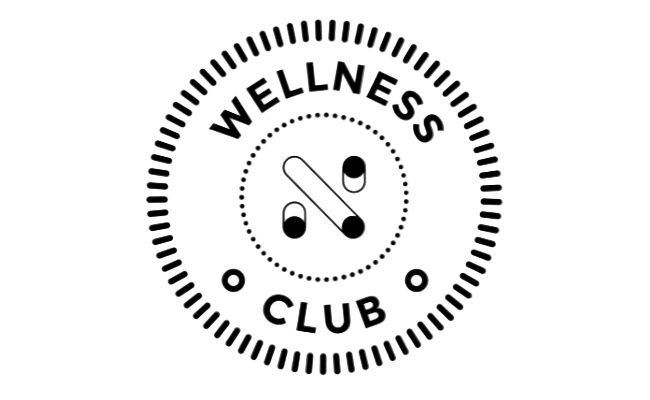What should you keep in mind when going for a massage?
Massages are a wonderful way to relax the body, reduce stress, and promote overall health. But before you lie down on the massage table, there are some important things to consider to get the most out of your treatment. In this article, you'll learn everything you need to know about massages, from choosing the right type to the preparations you should make.
Summary/TLDR
Before having a massage, you should make sure you choose the right type, arrive well prepared, and inform your therapist of any potential health issues. After the massage, it's important to drink plenty of water and take time to recover. Alternatively, a good massager, such as one from the NAIPO brand, can be a valuable addition to your home to regularly enjoy the benefits of massage.
Choosing the right massage
What types of massage are there?
There are many different types of massages, each with its own focus and benefits. Some of the most popular include:
- Swedish massage: This classic form of massage focuses on relaxation and the release of muscle tension.
- Deep tissue massage: This type of massage targets deeper layers of muscle tissue and is particularly helpful for chronic pain and tension.
- Sports massage: Specially developed for athletes, this massage helps prevent injuries and promote recovery after training.
- Aromatherapy massage: Essential oils are used to deepen relaxation and enhance well-being.
How do I find the right massage therapist?
The right massage therapist can make the difference between an average massage and a great one. Make sure the therapist is certified and has sufficient experience. Recommendations from friends or online reviews can also be helpful. It's also important to feel comfortable during the first session—the chemistry between you and your therapist plays a huge role in the success of the treatment.
Preparing for the massage
What should you consider before the massage?
Clothing and hygiene
Before a massage, it's important to maintain personal hygiene. A refreshing bath or shower before the treatment is recommended. You should also wear comfortable clothing that's easy to put on and take off. Many people wonder how much clothing they should wear during a massage. The answer varies, but generally speaking, wear as much or as little as you feel comfortable wearing. A good massage therapist will ensure you're adequately covered throughout the session.
Share health information
Before beginning your massage, you should inform your therapist about any health issues you may have. These include chronic pain, injuries, allergies, and other medical conditions. This information is important so the therapist can tailor the massage accordingly. For example, for certain conditions, a deep tissue massage may be too intense, requiring a gentler technique instead.
What to eat and drink before the massage?
It's advisable to eat a light meal about an hour before the massage and drink plenty of water. Avoid eating a heavy meal immediately before the massage, as this can cause discomfort. On the other hand, it's important to stay well hydrated, as massage stimulates blood circulation and lymph flow, which encourages your body to flush out toxins.
During the massage
How should I behave during the massage?
Communication is key
During the massage, it's important to communicate openly with your therapist. If the pressure is too strong or too light, let them know. Also, if you feel uncomfortable with certain movements or techniques, you should speak up. A good therapist will respond to your needs and adjust the treatment accordingly.
Breathing and relaxation
Focus on your breathing during the massage. Deep, even breathing helps you relax and enjoy the full benefits of the massage. Try to let go of thoughts of everyday life and focus entirely on the experience. The more relaxed you are, the more effective the massage will be.
After the massage
What should you do after the massage?
Drink water and rest
After the massage, it's important to drink plenty of water. As mentioned above, this helps flush out the toxins released during the massage. Plan some time for recovery after the massage. Your body has just undergone an intensive treatment, and it's important to give it time to regenerate.
Further care and follow-up appointments
After the massage, you can do some light stretching exercises to maintain flexibility and prevent muscle tension. It may also be beneficial to schedule regular massage appointments to reap the long-term health benefits. However, if you don't always have the time or budget for professional massages, a home massager can be a good alternative. The NAIPO brand, for example, offers high-quality devices that can help you relieve muscle tension and relax—all in the comfort of your own home.
Conclusion
Massages are a fantastic way to pamper your body and mind, but there are a few things you should keep in mind to ensure the best possible experience. From choosing the right massage type and therapist to preparation and aftercare, these tips will ensure your next massage is not only relaxing but also deeply beneficial.
FAQs
How often should you go for a massage?
The frequency depends on your individual needs and goals. For relaxation, a massage once a month may be sufficient, while more frequent massages may be beneficial for chronic pain or athletic activities.
Can a massage be harmful?
Massage can be harmful in certain situations, such as open wounds, skin conditions, or acute injuries. Therefore, it's important to share all relevant health information with your therapist.
What should I do if I feel pain during a massage?
It's important to speak to your therapist immediately if you experience any pain. They can adjust the pressure or use a different technique to ensure the massage remains comfortable.
Is it normal to feel tired after a massage?
Yes, it's completely normal to feel tired after a massage. Your body has worked hard to relax and needs time to recover. Give yourself a break and drink plenty of water.
Can you get massages while pregnant?
Yes, there are special pregnancy massages tailored to the needs of expectant mothers. However, it's important that you choose a therapist trained in this technique who can safely care for you throughout your pregnancy.
I hope this article has provided you with valuable information and helps you get the most out of your next massage!





Leave a comment
This site is protected by hCaptcha and the hCaptcha Privacy Policy and Terms of Service apply.